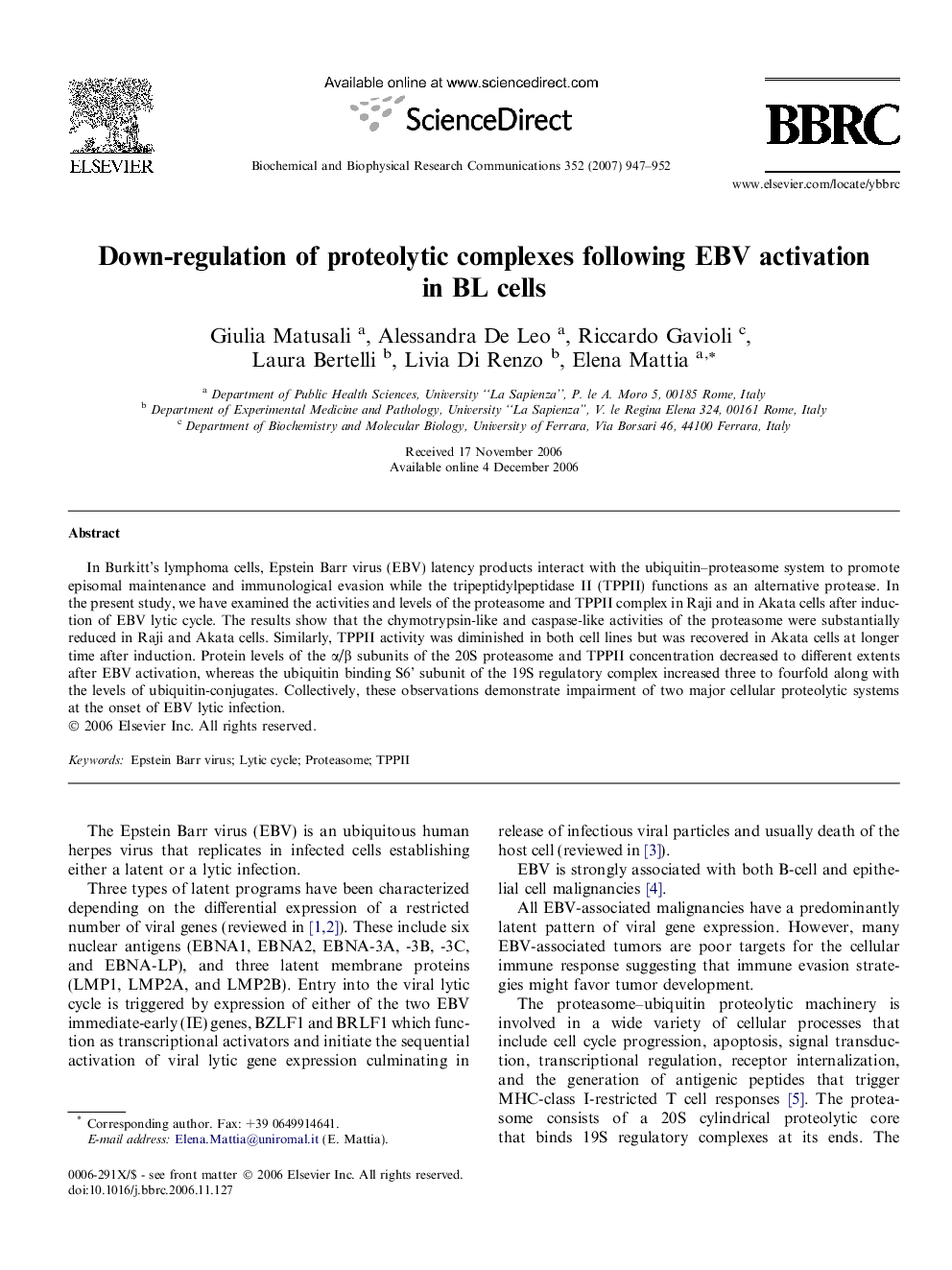| Article ID | Journal | Published Year | Pages | File Type |
|---|---|---|---|---|
| 1939755 | Biochemical and Biophysical Research Communications | 2007 | 6 Pages |
Abstract
In Burkitt's lymphoma cells, Epstein Barr virus (EBV) latency products interact with the ubiquitin-proteasome system to promote episomal maintenance and immunological evasion while the tripeptidylpeptidase II (TPPII) functions as an alternative protease. In the present study, we have examined the activities and levels of the proteasome and TPPII complex in Raji and in Akata cells after induction of EBV lytic cycle. The results show that the chymotrypsin-like and caspase-like activities of the proteasome were substantially reduced in Raji and Akata cells. Similarly, TPPII activity was diminished in both cell lines but was recovered in Akata cells at longer time after induction. Protein levels of the α/β subunits of the 20S proteasome and TPPII concentration decreased to different extents after EBV activation, whereas the ubiquitin binding S6' subunit of the 19S regulatory complex increased three to fourfold along with the levels of ubiquitin-conjugates. Collectively, these observations demonstrate impairment of two major cellular proteolytic systems at the onset of EBV lytic infection.
Related Topics
Life Sciences
Biochemistry, Genetics and Molecular Biology
Biochemistry
Authors
Giulia Matusali, Alessandra De Leo, Riccardo Gavioli, Laura Bertelli, Livia Di Renzo, Elena Mattia,
